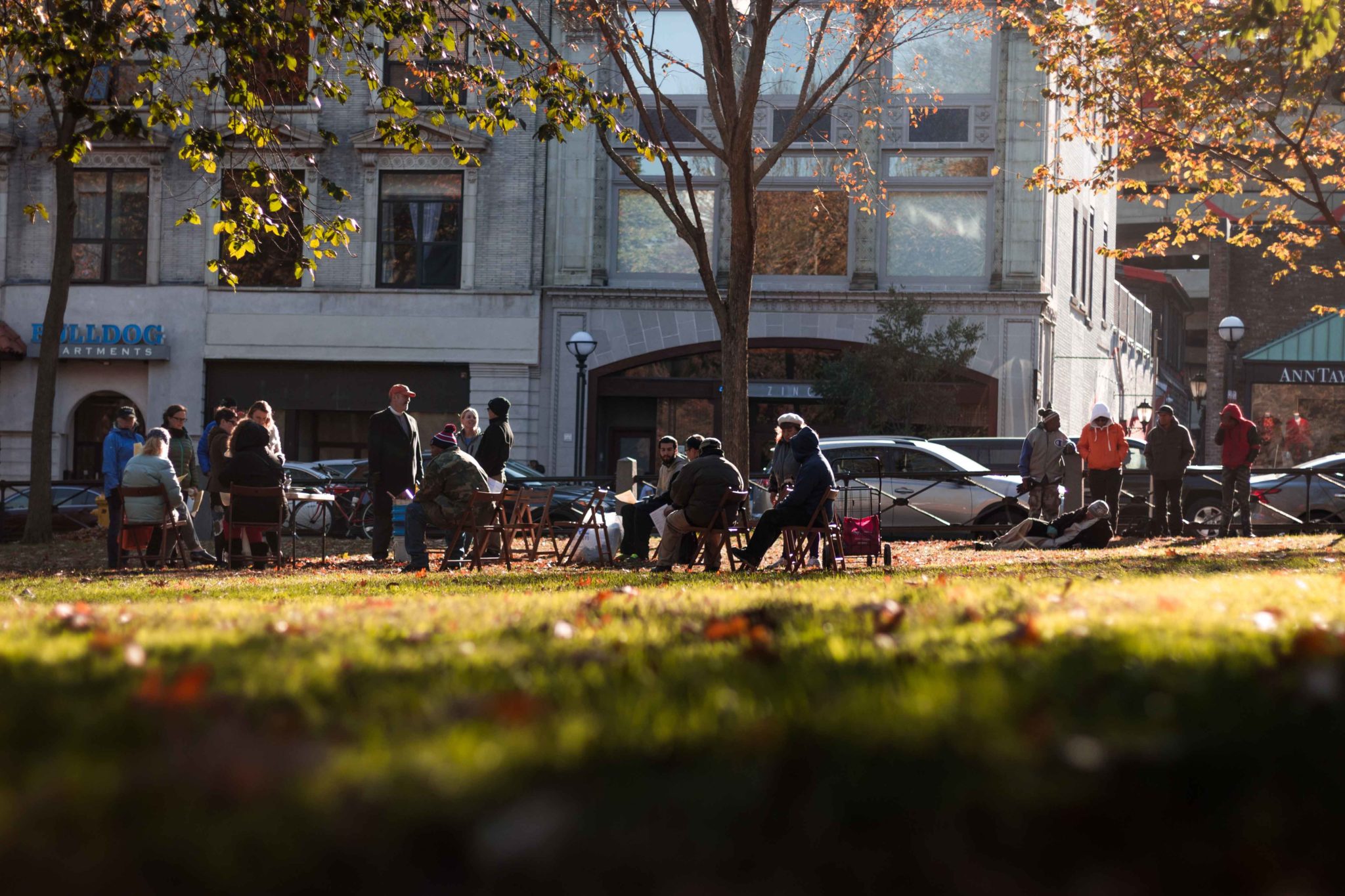
Two summers ago, Ryan Taggarse ’19 came up with an idea for a student group to help New Haven nonprofits raise charitable funds from large grant-giving organizations. Since then, his idea has blossomed into a 39-student-strong campus organization, called the Up Fund, which last semester raised $50,000 to invest in New Haven charitable organizations.
The Up Fund is split into two parts: One half works with community organizations in the Elm City to assess the efficacy of their initiatives and position them for grants, while the other half invests money raised by the Up Fund in the hope of donating the returns to help those same community organizations maintain the data necessary for grant applications. And, according to the students and Yale alumni involved, the group offers a special opportunity for students interested in social work, finance or both.
Michael Huang ’20 has been part of the Up Fund since spring 2017. He said that the group’s vision has dramatically come into focus since then, when the group had not yet raised any money nor clearly set its goals.
“We did know that there had to be some sweet spot between investment and community engagement,” Huang said. “We knew stewardship of assets — endowments, charities, pensions, etc. — was a significant part of how the financial sector interacts with people. That idea of investment with the appropriate concerns for risk management is why I am part of the organization.”
In keeping with the Up Fund’s joint interest in cultivating skills in finance and doing philanthropic work in New Haven, group members’ reasons for joining the group are various.
Ramiz Colak ’20, who leads the Up Fund’s investment team in the health care sector, said that coming to New Haven from Turkey left him passionate about giving back to his new community. Sarina Xu ’20, another co-head of the investment team, said she joined to experience what start-up culture feels like, although she noted that the most rewarding aspect of the work so far has been raising over $50,000 for the fund on the basis of its founding ideas alone.
Still, raising the necessary money was not an easy task. Taggarse, who worked with Minh Nguyen ’19 to co-found the group after he came up with the idea, said that the capital-raising campaign last semester was not a cake walk.
“Right after [the Up Fund] was incorporated, I called someone who has been very charitable to Yale in the past and he said, basically, ‘Students should just do bake sales, you can’t do this, this is out of your league, leave this to the professionals,’” Taggarse said. “Other people think it’s very cool … it was just a matter of telling as many people as possible about it.”
Taggarse explained that the organization raised its first $50,000 from a mix of sources, including a crowdfunding campaign, Yale alumni donations, a sponsorship from Samlyn Capital and a donation from Voya Financial — a retirement, investment and insurance company — that matched a donation from Mark Weber ’77, who is on the company’s investment team. In the long term, he added, the group wants to manage several hundred thousand dollars in order to finance larger grants for New Haven nonprofits.
Until then, the $50,000 is meant to operate as a “proof of concept” for what the Up Fund can do, Taggarse said.
“They cold called me, and the description that the student gave me just struck a chord,” said Adam Shapiro ’95, who donated to the group. “I liked how they had put together this effort to learn about investing and learn about it by actually practicing, by actually making investments, and then marrying that with the notion of funding social services.”
One local New Haven nonprofit that has begun working with the Up Fund is Elm City Internationals, a program that uses soccer as a catalyst to help provide the city’s low-income students with academic and personal support to help them towards a college degree.
Lauren Mednick, the founder of Elm City Internationals, said that she is looking forward to when the Up Fund’s work starts to make a noticeable difference for her organization, especially when it comes to helping them raise money from large grant-providing organizations, like the Robin Hood Foundation, that use metrics to determine how best to invest their money in poverty-fighting organizations.
“For small groups like Elm City international, it is very hard to be competitive,” said Mednick. “I am really excited to be working with this group; as of now, I think they’re still collecting data, so we haven’t really seen the other end yet about the ways they can help Elm City International and other groups in the community. They’re just starting up.”
Britton O’Daly | britton.odaly@yale.edu







